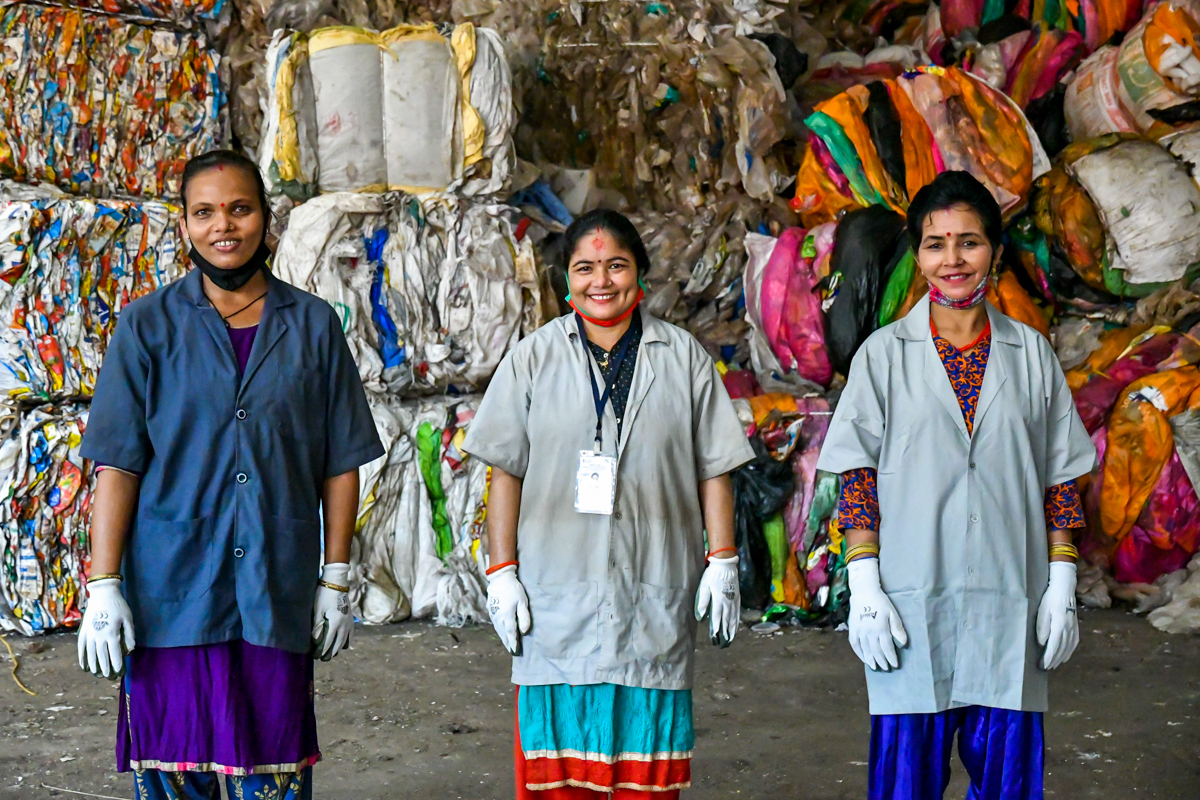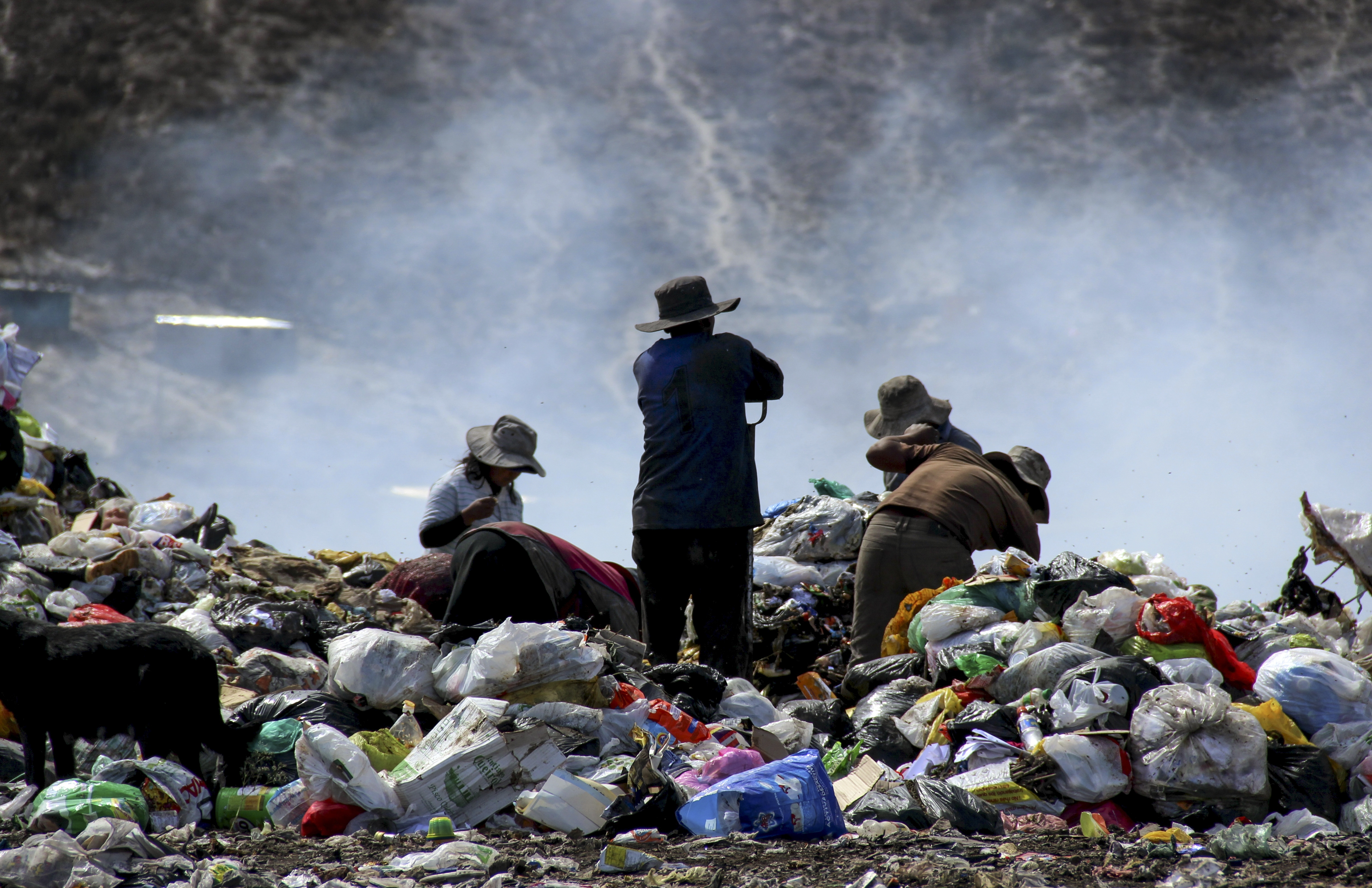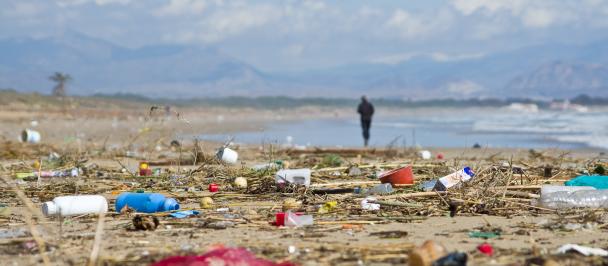Unsung heroes: Four things policymakers can do to empower informal waste workers
December 28, 2023

Informal waste workers are the unsung heroes who prevent significant amounts of plastic waste from leaking into the environment and ending up in our ocean.
As we approach the end of the year, many of us pause to reflect on what we are grateful for and donate time or resources to those who are less fortunate. After spending this past year investigating solutions to the plastic pollution crisis, one group of people immediately came to mind in my own reflections: informal waste workers. They are the unsung heroes who prevented significant plastic waste from leaking into the environment and ending up in our ocean.
On the edge of city life around the world, informal waste workers (often pickers and scavengers) are working under hazardous and deplorable conditions, making a living out of things that are discarded as waste by others. Up to 20 million people worldwide work in the informal waste sector. Many of them are women, children, elderly and people with disability who are forced into this livelihood and are often the poorest of the urban poor. In addition to economic hardship, they face discrimination, violence and sexual harassment.
In 2016 alone, they managed to collect 27 million metrics tonnes of plastic waste, preventing it from ending up in landfills or the ocean. This means that approximately 59 percent of all the plastic material collected for recycling globally is carried out by the informal waste sector. By preventing the leakage of plastic waste to the environment, they help to protect other people’s health and the environment especially marine living species. Despite their contributions, their services have been often overlooked and undervalued.

Worldwide, up to 20 million people work in the informal waste sector. In addition to economic hardship and unsafe conditions, they often face discrimination and violence.
The ongoing negotiation for a global plastics treaty must consider how to empower informal waste workers and ensure they are part of the just transition towards a future circular economy free of plastic pollution. Here are four things policymakers can do to empower informal waste workers and make waste management systems more effective.
1. Recognize informal waste workers’ services and include them in decision making
The world generates 2 billion tons of municipal solid waste each year. At least one third of the waste is not properly managed and disposed of. In many developing countries, there are no formal waste collection systems in place, and informal waste pickers play a critical role in waste management and resource efficiency by collecting, sorting, trading and sometimes even putting the discarded waste back into the economy. Despite their significant contribution, they are rarely recognized or compensated for their role.
When governments develop policies and allocate municipal funding for waste management, they must consider the role of informal waste workers. Recognizing and supporting them is a practical policy consideration that can save cost, improve waste management and achieve better social inclusion. For example, in India, establishing formal waste management across the country via public-private partnerships would require US$5 billion every year, if it is even possible to implement on the ground. The informal sector, however, requires less infrastructure, is highly responsive to economic signals, and is very flexible. Making sure our interventions enable the informal waste sector is economical, environmentally sustainable and socially inclusive.
"Approximately 59% of all the plastic material collected for recycling globally is carried out by the informal waste sector. By preventing the leakage of plastic waste to the environment, they help to protect other people’s health and the environment."
2. Improve working conditions
Informal waste workers operate under dire and unsafe conditions. They often scavenge recyclables with their bare hands from waste bins or dumps that emit rotten smells and toxic fumes. Without basic safety and protective gear, injuries, respirational illnesses and allergies are common. Where waste contains harmful chemicals, workers are at risk of contracting severe, long-term diseases such as cancer, diabetes, or reproductive disorders. Safety training and provision of basic protection equipment such as gloves and masks can help to reduce work-related injuries.
Where conditions allow, governments should integrate informal waste workers in their formal waste management systems. A shift in the collection from bins and dumps to door-to-door in-home collection can drastically enhance informal waste workers’ working conditions. This requires government support to raise awareness among people and communities to separate at household level waste which can be picked up by informal waste workers.
3. Ensure fair payment and financing access for informal waste workers’ services
Currently, informal waste workers are paid through the recyclables they collect and sell. Their income is low and unstable, and does not reflect their contribution to protecting the environment from being polluted by plastic waste. Just like some local communities that are paid to conserve the Amazon and Congo forests to protect these global carbon sinks, informal waste pickers should be compensated for their global clean-up and recycling services that help conserve our oceans.
To finance the payment for informal waste workers’ services, governments should consider establishing a national fund with fees collected from producers through extended producer responsibility (EPR) approaches, based on the “polluter pays” principle. Taxes and fees collected from the use of plastics could also contribute to this fund for payment to informal waste workers.

UNDP supports informal waste workers in Viet Nam, providing protective gear and other equipment to facilitate collection activities and protect their health and safety.
4. Reduce types of plastics, and design products with reuse and recycling in mind
One critical obstacle to plastic recycling is the large number of types, additives and compositions of plastics. The complexity of different types of plastics makes it hard to separate and sort, creating unnecessary burdens for informal waste workers. Producers should be encouraged to limit the plastic types and additives to facilitate collection, separation and recycling. With reduced numbers of plastic types and additives, collection and recycling will be easier.
A call to support informal waste workers
UNDP has been supporting informal waste workers through its plastics and waste projects and programmes. In Viet Nam, UNDP provided waste collection tools and equipment including protective gear to informal waste collectors to facilitate collection activities and protect their health and safety. A revolving fund was established to provide financial assistance to informal waste workers in difficult economic and social situations with limited to no interest rates. Elderly people, who are not able to work anymore gain access to provincial social protection centres for support including food, shelter and healthcare. UNDP is seeking partners to further scale up our support to informal waste workers and support countries to build inclusive and effective waste management systems.
Current efforts to support informal waste workers are far from adequate. Our societies don’t recognize and fairly pay them for their valuable contribution. Following the principle of “leaving no one behind”, let's be their champions and create just and inclusive societies. We need all key stakeholders to stand behind this group of people: policymakers to integrate them in sound decision making, scientific community to quantify and provide evidence of their contributions, and civil society organizations to advocate on their behalf.
Next time you see informal waste workers, remember they are the guardians protecting people and planet, and say “thank you” to them for their valuable work.

 Locations
Locations



